90 Years of Making History
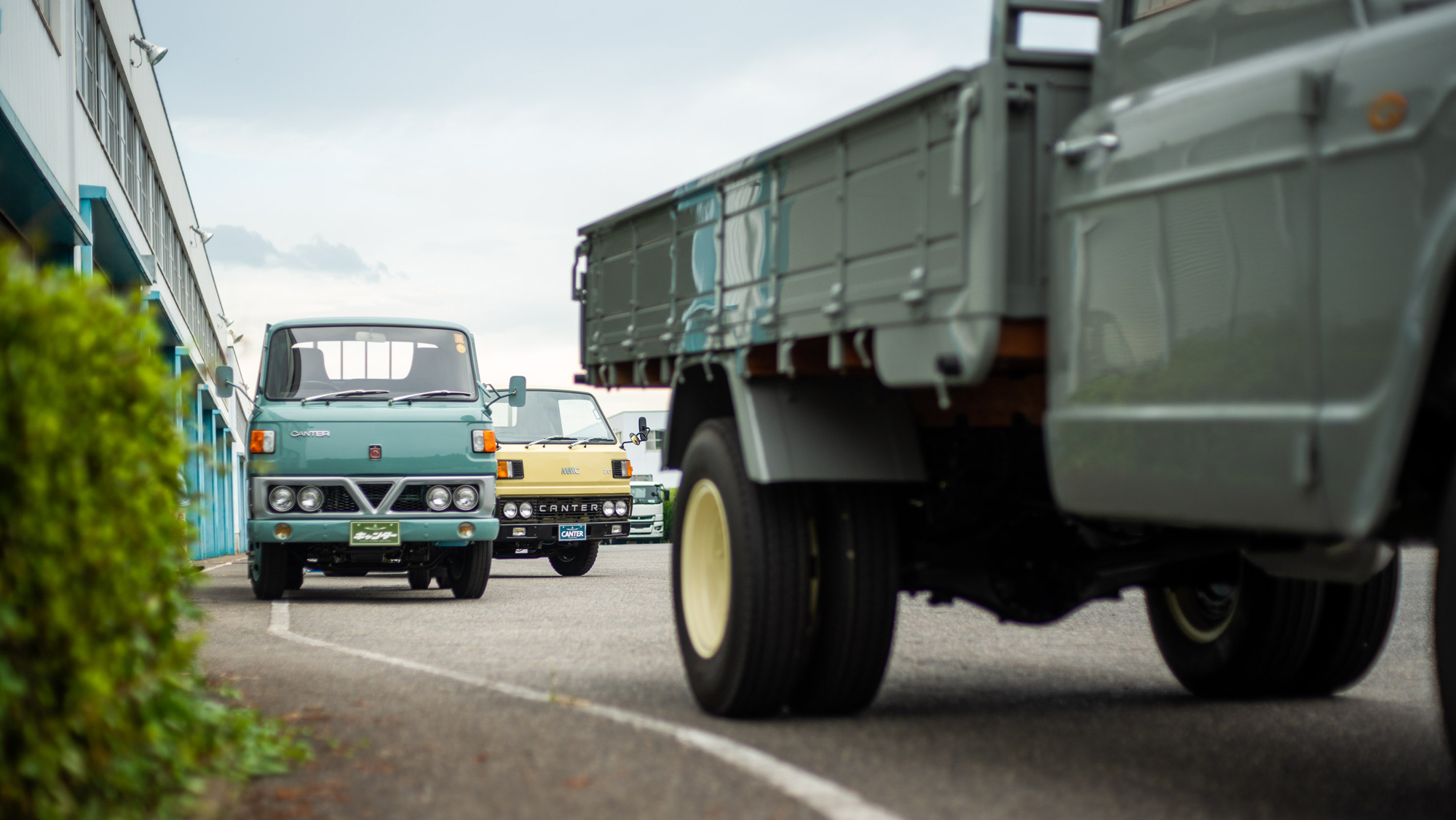
We use cookies to help you navigate efficiently and perform certain functions. You will find detailed information about all cookies under each consent category below.
The cookies that are categorized as "Necessary" are stored on your browser as they are essential for enabling the basic functionalities of the site. ...
Necessary cookies are required to enable the basic features of this site, such as providing secure log-in or adjusting your consent preferences. These cookies do not store any personally identifiable data.
Functional cookies help perform certain functionalities like sharing the content of the website on social media platforms, collecting feedback, and other third-party features.
Analytical cookies are used to understand how visitors interact with the website. These cookies help provide information on metrics such as the number of visitors, bounce rate, traffic source, etc.
Performance cookies are used to understand and analyze the key performance indexes of the website which helps in delivering a better user experience for the visitors.
Advertisement cookies are used to provide visitors with customized advertisements based on the pages you visited previously and to analyze the effectiveness of the ad campaigns.
Other cookies are those that are being identified and have not been classified into any category as yet.
Sorry. We did not find anything.

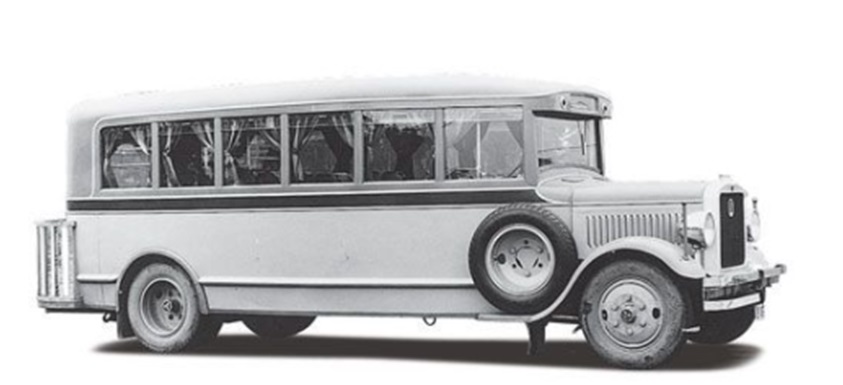
Each brand has an origin story and Mitsubishi Fuso is no different. Afterall, it’s global icon with nine decades of experience and vehicles in over 170 markets.
The name “FUSO” dates back to May of 1932 when former Mitsubishi Shipbuilding (now Mitsubishi Heavy Industries) developed its one-of-a-kind B46 bus. With a 7L 6-cyclinder engine it was able to produce an impressive 100hp for the 7-meter, 38-passenger bus at the time.
In short, it was special and required an equally special name. The Japan Ministry of Railways was the B46’s first customer and Mitsubishi Heavy Industries wanted to make an impression with a distinctive name.
In need of ideas, employees were asked to submit suggestions that sounded soothing and melodious. The choice was “FUSO.” With that the brand was born. The term “FUSO” can be traced to the ancient Chinese word “Fusang,” which refers to a tree of eternal life that only grows on a sacred island.
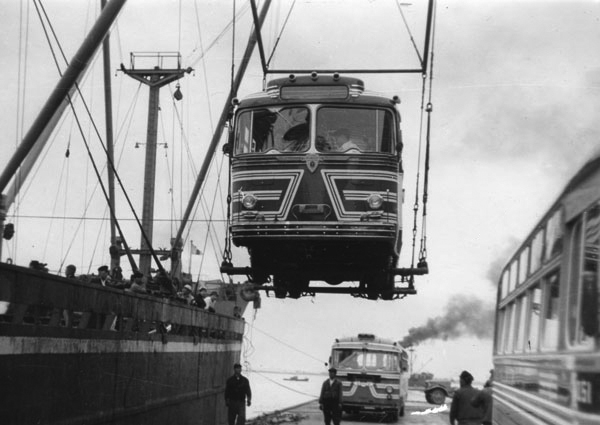
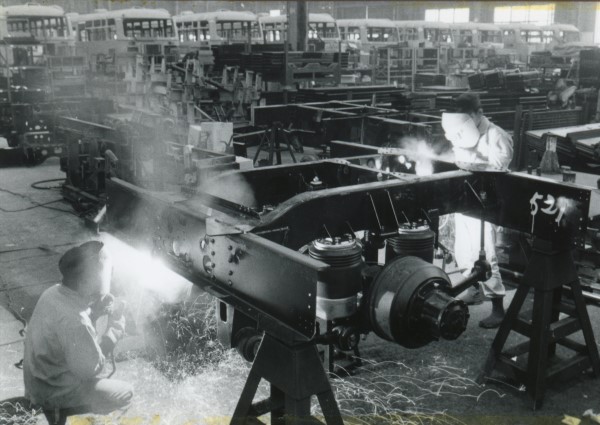
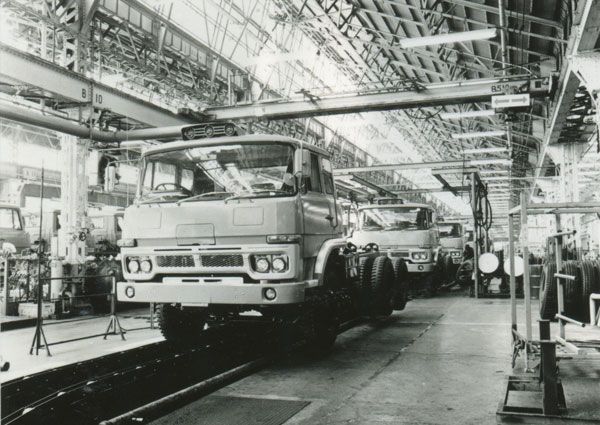
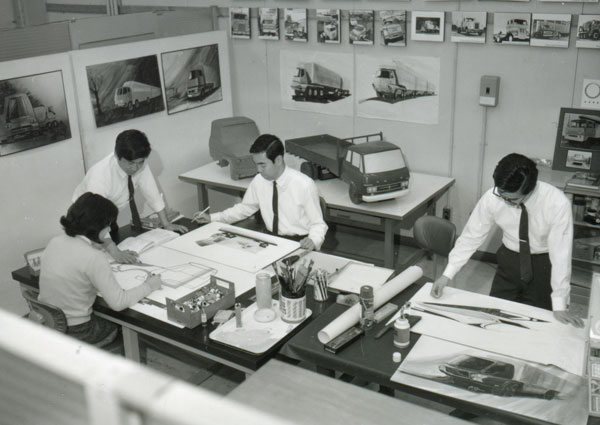
Since its beginnings, the FUSO brand has become synonymous with quality and inspired generations in the commercial vehicle industry for nearly a century. Our vehicles have a reputation among drivers and industry experts as being both reliable and cutting-edge, handling business demands day in and day out in tough environments around the world.
FUSO product designs maintains a people-first principle focusing on the comfort and well-being of drivers, while providing advanced safety systems for safer roads around the world.

"YB40" 2-ton diesel truck is produced.

"B1" gasoline bus is produced.

"W11" 4-ton dump truck is produced.

"T33" 8-ton, Japan’s first genuine heavy-duty truck, is produced.

"B10 Rosa” small-size bus is launched.

"T720 Canter” light-duty cab-over truck is launched.

"B906R" high-speed, long-distance tourist bus is produced.

“MK115” medium-size bus is launched.

“FS119S” heavy-duty low bed truck is launched.

“Canter” light-duty truck undergoes full model change. Wide cab and 3-ton models are added to lineup.

Large-size tour bus, named “AERO BUS”-series, is launched.

Heavy-duty truck FT/FU/FV series undergo full model change and is given new name "The Great."

“Fighter” medium-duty truck, is launched.

Heavy-duty truck undergoes first model change in 13 years and named “Super Great”.

Launched the "AERO STAR" non-step bus, the first heavy-duty route bus in Japan.

Light-duty hybrid truck "Canter Eco Hybrid" is released.

“Canter” light-duty truck undergoes full model change.

Launched the Super Great V, with its realization of game-changing low-fuel consumption.
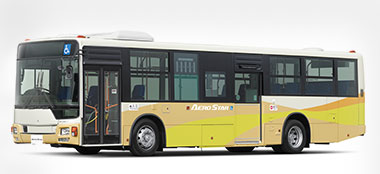
“New Aero Star” large-size route bus undergoes full model change.

The further-evolved “Canter” light-duty truck is launched.
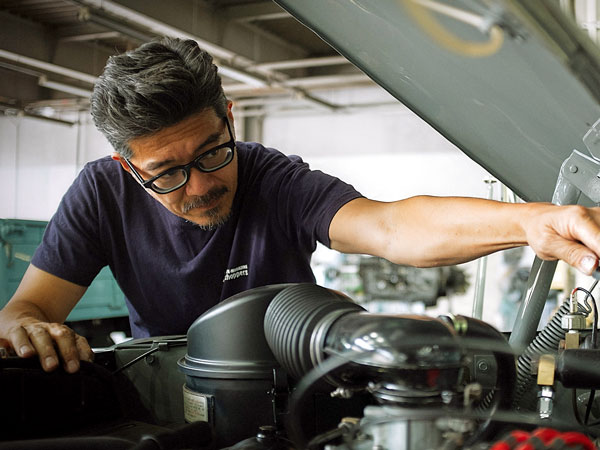
The thrill of the engine roaring to life and... releasing the clutch have stayed with me for life.
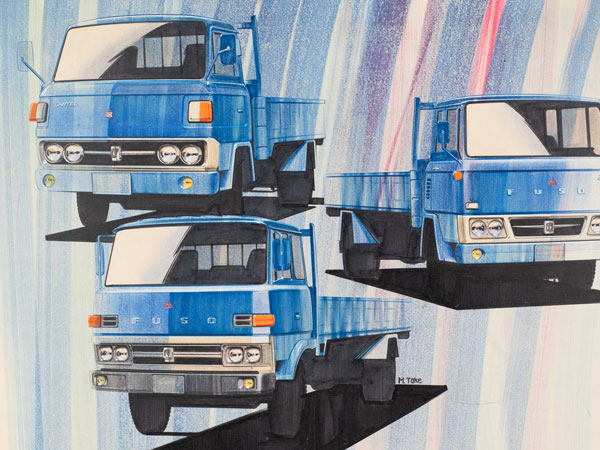
Artistic renderings from the early 1970's shaped FUSO's design direction for future generations.
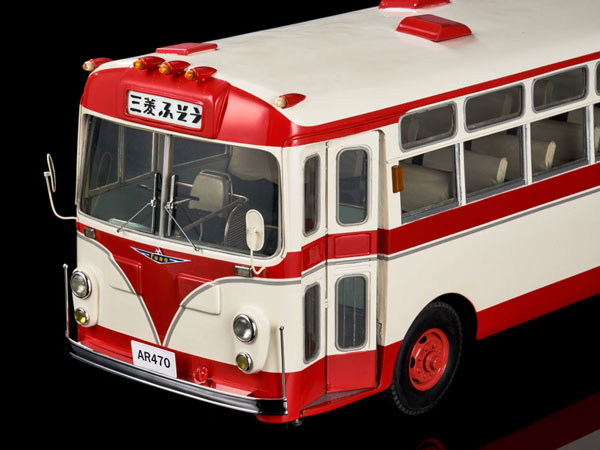
Once kings of the road, this collection of bygone-era coaches continues to inspire.
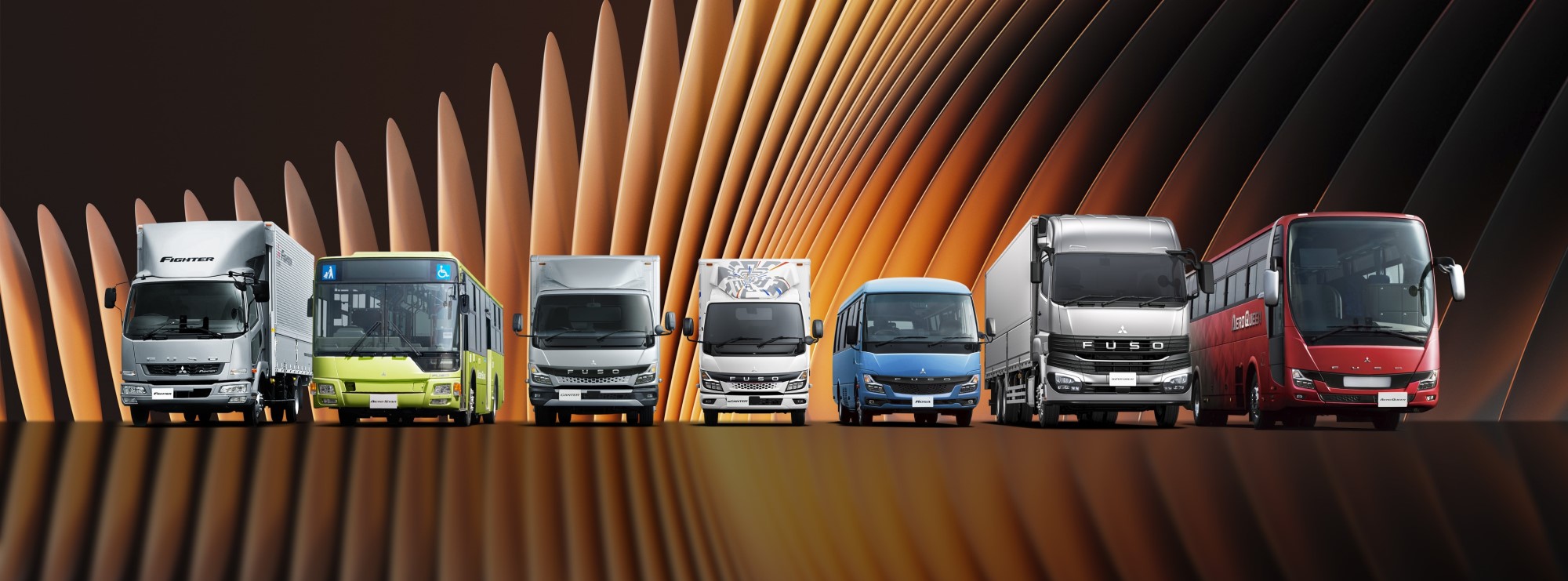
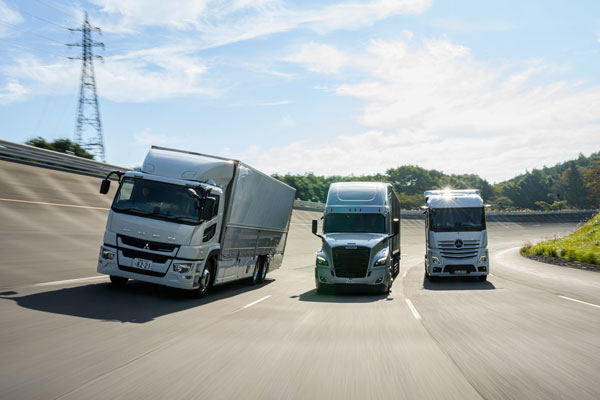
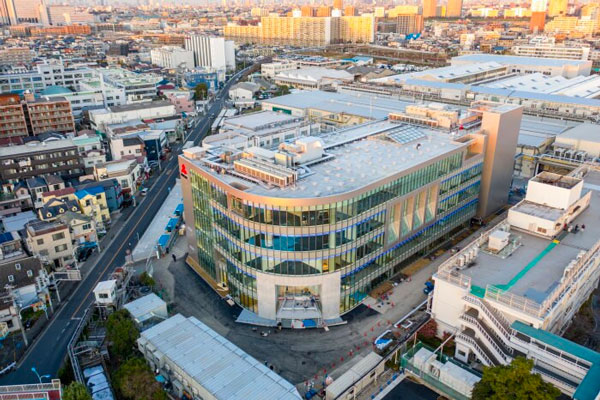
In 2003 Mitsubishi Fuso Truck and Bus Corporation was established following the purchase of a majority share by DaimlerChrysler (now Daimler Truck AG). With production facilities in India and Portugal and multiple production facilities in Japan, commercial vehicles adorned with the characteristic three diamonds account for over a third of the total sales volume of Daimler Truck AG.
In 2019, MFTBC opened the FUSO Design Center. Equipped with the latest 3D scanning and modeling tools, VR and multimedia software, as well as traditional techniques like clay modeling, the state-of-the-art facility ensures our design prowess will continue for generations.
2022 marked the 90 year anniversary of the brand, with the following year celebrating the 60th year of FUSO’s most popular model, the light-duty Canter. Additionally the MFTE plant in Tramagal, Portugal reached a major milestone of 250,000 Canters produced.
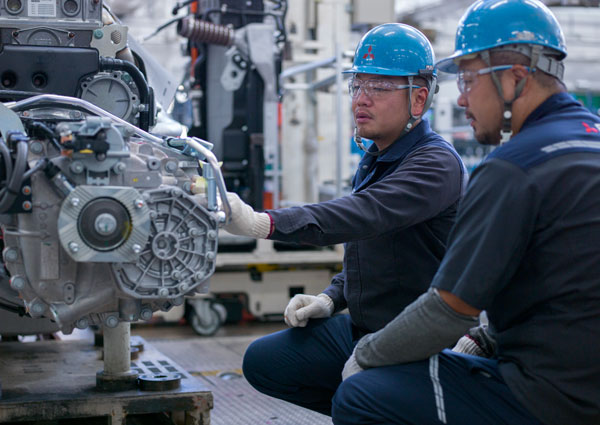
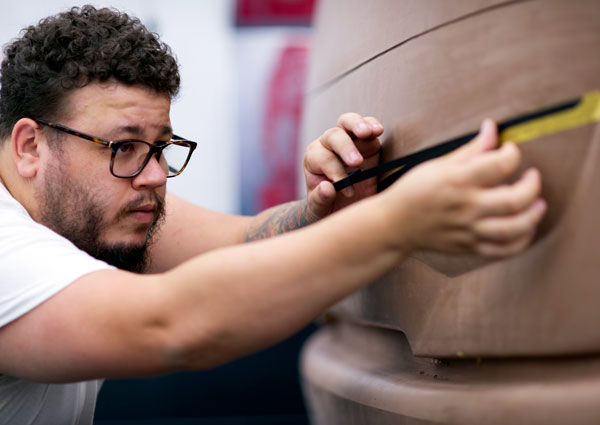
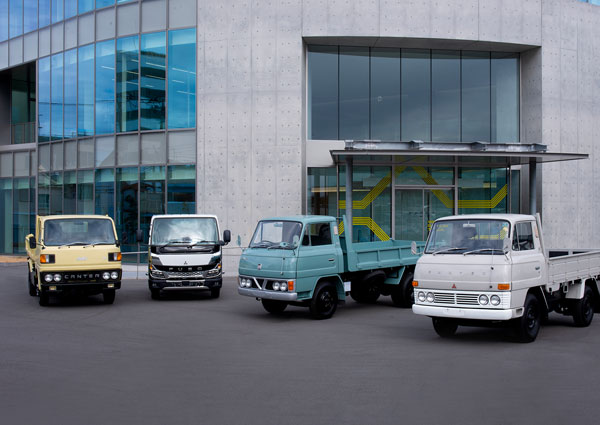
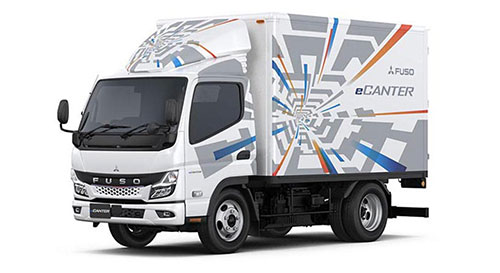
In 2017, FUSO established its credentials as a true industry leader and surprised the world by offering the first series-produced all-electric vehicle, the eCanter.
The eCanter is one of the most tested electric commercial vehicles in the world with more than 8 million kilometers of real-world driving under its belt. It has distinguished itself an ideal zero-emission solution for businesses and fleets and is currently in its third generation of production with vehicles operating on roads in five continents.
MFTBC continues to drive technological innovations in vehicle safety systems, ergonomics, and eMobility by listening to our customer’s needs in order to provide a seamless transition to sustainability through solutions that fit their business goals.
FUSO vehicles help inspire confidence, mile after mile for people, businesses and society.